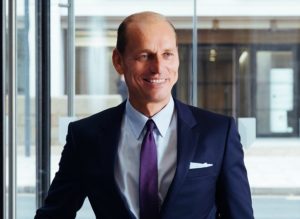
Matthias Belz, Head of JTC Private Office, reflects on 2019 and looks ahead to what family offices should be focusing on in 2020.
– 2019 has been another year of uncertainty around the world. Has this impacted families’ priorities in terms of their structuring and priorities?
Yes, the uncertainty continues and there are various trends, depending on the region, the economic development of the country and the wealth of the families. Clearly tax efficiencies took a backseat; they are now a nice-to-have, rather than the main driver of any structure. Compliance and transparent reporting, however, continued to become more relevant and important. Overly complex structures are being simplified to avoid scrutiny, and direct impact, sustainability and ESG investments have increased further.
– 2019 has also seen a rapid rise in the Environmental, Social and Governance (ESG) investing – how do you see this evolving in 2020 for families?
ESG investing is here to stay. It will become standard and will develop further, going deeper and wider in range. Where governments fail, we will see wealthy investors filling the gaps, just like with public private partnerships. We therefore expect an increase in sustainable, ESG and impact investments as well as philanthropy in the coming years.
– How are families reacting to digital innovation and opportunities? Is digital a challenge, or an opportunity?
The digital innovations have created many benefits to family offices, just like to anyone else. These include improved reporting, general speed of service, transparency and facilitating the decision making process in a mobile world. But the other side of the coin is dependency, as well as various cyber risks. We expect to see an increase in specialised firms attending to the FO’s needs, from education, cyber security, software as well as entire private infrastructures for the HNW community. At JTC Private Office we have introduced Edge, a bespoke and secure platform that helps clients to organise their wealth and other affairs easily in one place.
– There’s been much said about the ‘great wealth transfer’ anticipated over the coming years and the significance of the attitudes of the next generation. How are families factoring this into their succession plans?
Correct, never has so much wealth been passed from one generation to the next, and from what we see and hear, not even half of the baby boomer entrepreneurs have prepared for succession. The simple consequence of this failure will be a substantial tax windfall for governments and closure, split or sale of many family owned SMEs in the next 15 years. As for the attitudes of the incoming generation, much has been written about their different values, goals and expectations. It is only natural that they are different from their parents’ generation, but I wouldn’t judge them and I believe they have a wider horizon than we had at their age.
Further, I think there is less pressure on this generation than the last one to continue with the family business. In the past, it was not even a question whether one of the children would take over from their parents, whereas today, most children first gain experience in other companies, or even industries, before they consider joining the family business. I have talked to a few company owners who advised their children NOT to step in their shoes – so there is definitely a change in wealth transfer compared to 30 years ago.
– What do you consider to be the 3 big challenges/opportunities for families in 2020?
A standing challenge for any FO is to guide and equip the family business for the future. Then, as we just discussed, the generational change is something the FO should take seriously and start working on early, whilst there is still time. The last, which is a challenge as well as an opportunity, is technology in terms of investment as well as risk. I’m convinced it is high on any FO’s agenda.
Another opportunity, as the FO industry becomes more sophisticated, is to look at the FO’s current state, have it reviewed by professional consultants or auditors and upgrade it to a more institutional level in terms of security, record keeping, procedures, compliance, consolidation and personnel.
Should you wish to contact Matthias directly please click here